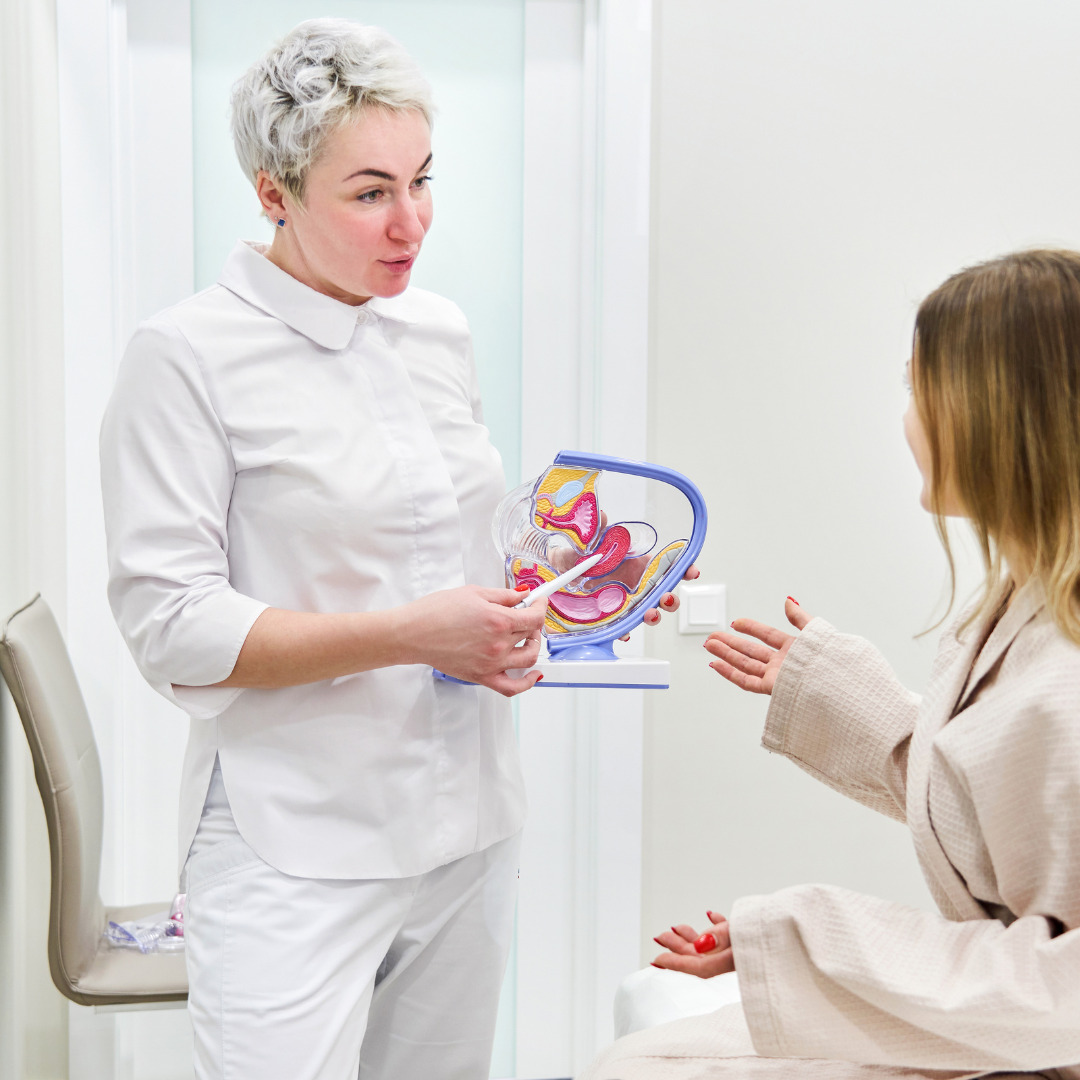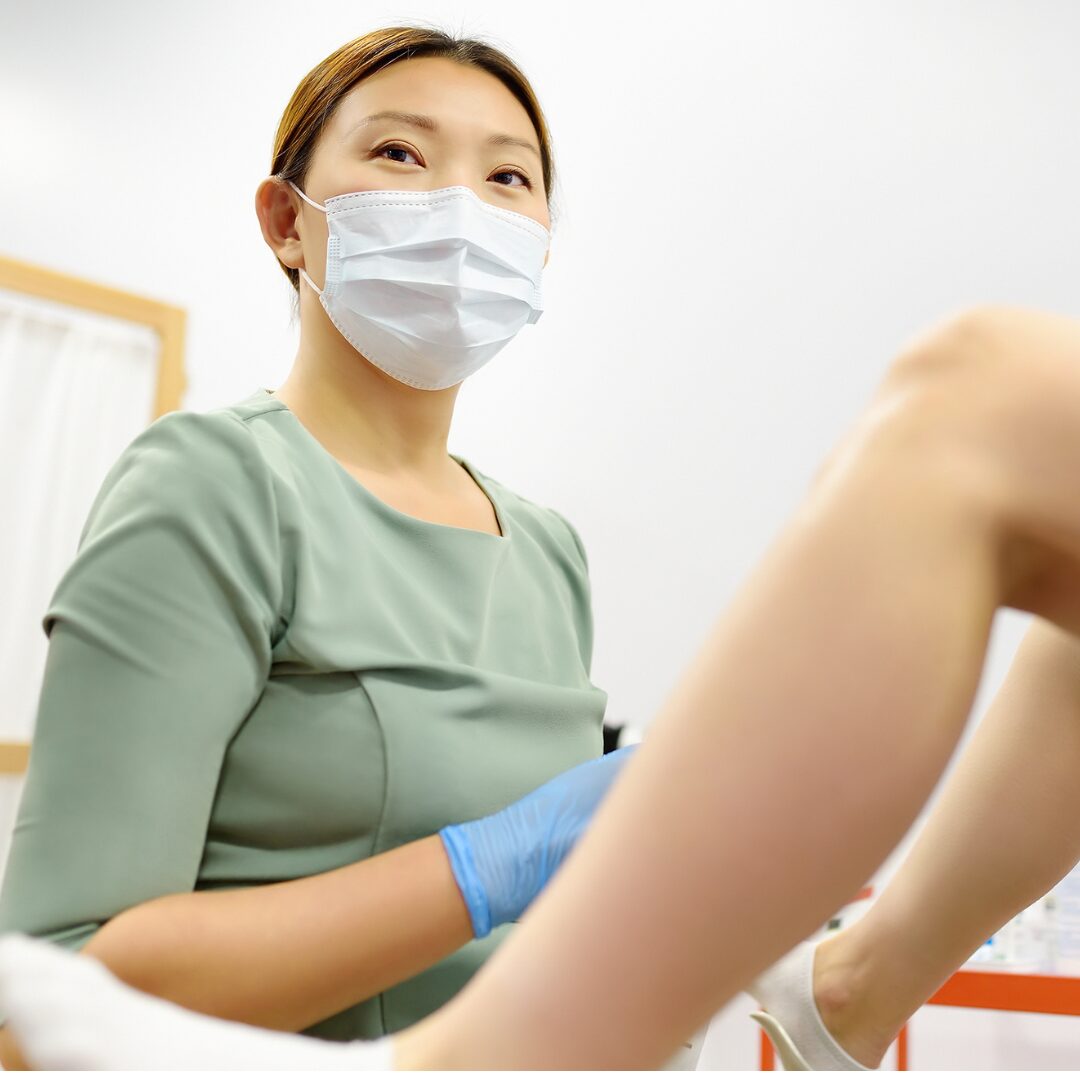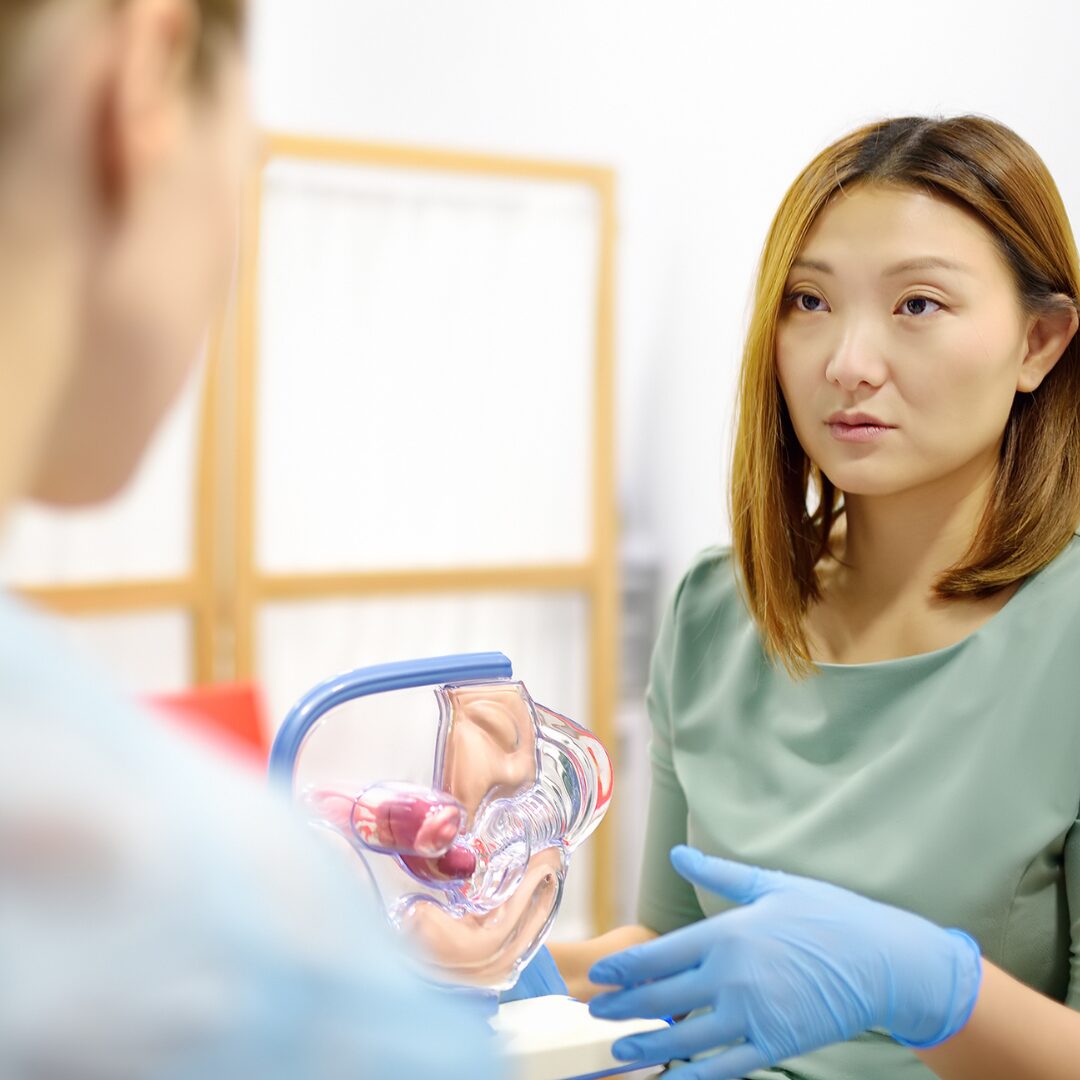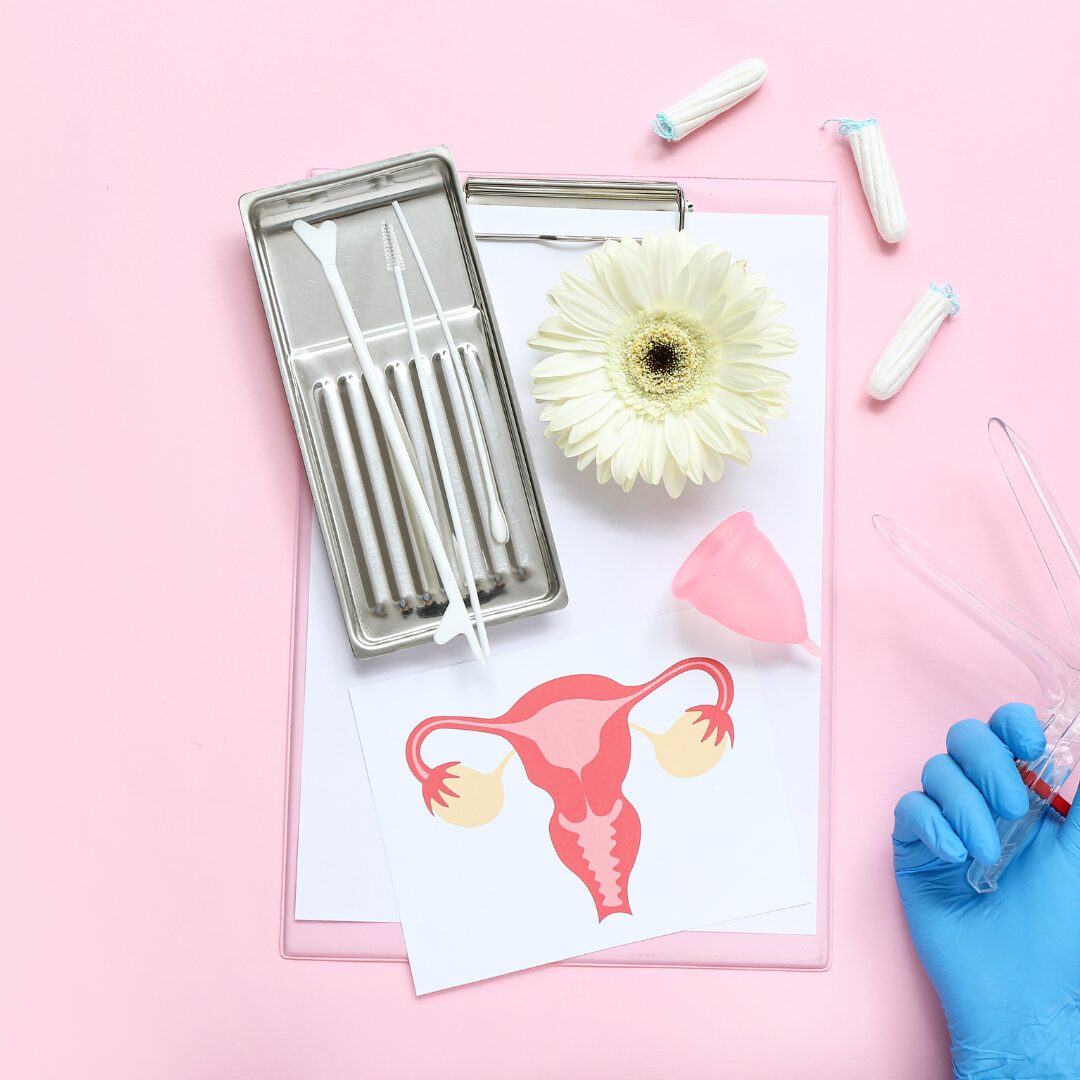
Obria Medical Clinics Offers Low-Cost Pap Smears and Well Woman Exams.
Take charge of your cervical health and book and appointment at a clinic near you!
Your Essential Guide to Pap Smears: What You Need to Know
Feeling unsure about Pap smears? Whether you’re wondering if you can get one while on your period or if it’s okay if you’re a virgin, you’re not alone. In this easy-to-follow guide, we’ll answer your key questions and help you feel confident about this important health screening. Let’s dive in and get you all set to take charge of your cervical health!
What is a Pap Smear?
A Pap smear is a routine screening test for cervical cancer usually performed during an annual Well Woman exam. It involves collecting cells from the cervix, the lower part of the uterus that connects to the vagina. These cells are then examined under a microscope to detect any abnormal changes that could be a sign of precancerous or cancerous conditions.
Pap smears are a normal, essential part of women’s health care. By getting regular Pap smears, you’re taking charge of your reproductive health and staying ahead of potential problems.
How to Prepare for a Pap Smear: Key Tips
- Avoid Sexual Intercourse: Refrain from sex 24 to 48 hours before the test to ensure the most accurate results.
- Skip Douching and Tampons: Avoid douching or using tampons for 24 hours prior to the Pap smear, as these can interfere with the sample.
- Choose the Right Timing: Schedule your Pap smear for a time when you’re not menstruating, if possible. Blood from your period can affect the results.
- Inform Your Provider: Let your healthcare provider know if you are pregnant or have any health concerns.
- Wear Comfortable Clothing: Opt for comfortable clothing that’s easy to remove, as you may need to undress from the waist down.
- Arrive on Time: Plan to arrive a few minutes early to complete any necessary paperwork and relax before the procedure.

Protect Yourself Against Cervical Cancer.
The pap smear is one of the best ways women can guard themselves against cervical cancers. Schedule your appointment today.
Where Can I Get a Pap Smear Near Me?
Obria Medical Clinics offer affordable and low-cost pap smears and well woman exams near you through our nationwide clinic locations. Find an Obria clinic and schedule a low-cost pap smear today!
Outside of Obria, finding a healthcare provider to perform a Pap smear is relatively easy. Many gynecologists, family physicians, and nurse practitioners offer this service. To find a provider near you, you can:
- Check with your insurance company: Your insurance provider may have a list of in-network providers.
- Search online: Websites like Healthgrades, Zocdoc, or your local hospital’s directory can help you find providers in your area.
- Ask for recommendations: Friends, family, or your primary care physician can suggest providers.
Can an FNP (Family Nurse Practitioner) Do a Pap Smear?
Yes, a nurse practitioner (NP) can perform a Pap smear. NPs are trained healthcare professionals who can provide a wide range of medical services, including preventive screenings like Pap smears.

Women Should Begin Pap Smears at Age 21, Regardless of Sexual History
Women should start getting Pap smears at age 21, even if they’ve never had sex. This test is important because it checks for early signs of cervical cancer, which can develop whether or not someone is sexually active. Getting this screening regularly helps catch any problems early, so they can be treated before they become serious. It’s a key part of staying healthy and protecting yourself in the long run.
How Often Do I Need to Get a Pap Smear?
You should get a Pap smear at least once every 3 years starting at age 21.
After age 30, you may switch to every 5 years if you’re also getting tested for HPV (human papillomavirus). Check out our Guide to Reproductive Testing by Age for more inormation on how to take control of your reproductive health at every age.
Should I Get a Pap Smear If I've Never Had Sex?
Yes, you should still get a Pap Smear if you are over the age of 21, even if you are a virgin or if you’ve never had sex. The procedure is designed to screen for cervical abnormalities and is not dependent on your sexual activity. The healthcare provider will use a speculum to access the cervix, which is generally well-tolerated regardless of sexual history. Even if you have never had sex and are at the age of 21, it is still recommended you begin getting pap smears. If you have concerns about the procedure, discussing them with your healthcare provider beforehand can help address any questions or discomfort you might have.
Does a Pap Smear Hurt?
Many women describe the sensation of a Pap smear as a brief discomfort, similar to a pinch. However, some women may experience no pain at all. If you have concerns about discomfort, talk to your healthcare provider.
Does a Pap Smear Go Into The Cervix?
Yes, a Pap smear involves collecting cells from the cervix. During the procedure, a healthcare provider inserts a speculum into the vagina to gently open it, allowing access to the cervix. They then use a small brush or spatula to collect a sample of cells from the cervix’s surface. While the process involves accessing the cervix, it is generally quick, some feel no pain at all or at the most mildly uncomfortable.


Can You Get a Pap Smear On Your Period?
We recommend waiting until your period has ended before having a Pap smear, especially if your flow is heavy. Menstrual blood can sometimes hide abnormal cervical cells, which might affect the results and could require a repeat test.
Ideally, try to book your Pap smear for when you’re not on your period as recommended by ACOG. If your period starts unexpectedly, it’s still a good idea to check with your provider. They can advise whether to proceed or reschedule. Learn more about Navigating Pap Smears On Your Period with our ultimate guide.
Why You Should Avoid Tampons Before a Pap Smear
It’s important to avoid using tampons 24 hours before your Pap smear to ensure accurate test results. Tampons can leave behind fibers that affect the vaginal environment, which may interfere with the collection of cervical cells. This can lead to inaccurate results or the need for a repeat test. For the most reliable Pap smear results, opt for panty liners or pads instead of tampons leading up to your appointment.
Sex and Pap Smears: Answers to Common Questions
Can You Have Sex Before a Pap Smear?
It’s generally advised to avoid having sex 24 to 48 hours before your Pap smear. Sexual activity can introduce bacteria or cells that might interfere with the accuracy of the test results. To ensure the most reliable outcome, avoid sexual intercourse before your pap smear.
Can Sex Before a Pap Smear Cause Abnormal results?
Yes, having sex right before your Pap smear may introduce cells or bacteria that can affect the test, which may lead to inconclusive or abnormal results. It’s generally recommended to avoid sexual intercourse for 24 to 48 hours before your Pap smear to ensure the most accurate results.
Can I Have Sex After a Pap?
Yes, you can typically resume sexual activity after a Pap smear. However, it’s often recommended to wait until any discomfort or spotting has resolved, which may take a few hours to a day. This varies from person to person of course.
Does Sex Hurt After a Pap Smear?
Sex should not generally be painful after a Pap smear. However, some women may experience mild discomfort, spotting, or cramping immediately following the procedure, which can make sex immediately after painful. These symptoms are usually temporary and should resolve within a few hours to a day. It is recommended to wait until spotting and discomfort has resolved before having sex after a pap.

Understanding Abnormal Pap Smear Results
What causes an abnormal Pap Smear?
It’s important to note that having an abnormal Pap smear does not necessarily mean you have cervical cancer. Many women with abnormal results have precancerous or benign conditions that can be treated effectively.
Some reasons for an abnormal pap smear result include:
- Human Papillomavirus (HPV) Infection: Certain strains of HPV are known to cause changes in cervical cells that can lead to abnormal Pap results.
- Cervical Dysplasia: This condition involves precancerous changes in the cervical cells that may show up as abnormal on a Pap smear.
- Inflammation or Infection: Conditions such as bacterial or yeast infections can cause inflammation, leading to abnormal cell changes.
- Hormonal Changes: Fluctuations in hormone levels, such as those caused by pregnancy or menopause, can sometimes affect Pap results.
- Cellular Changes Due to Menstruation: Blood and mucus from menstruation can obscure cervical cells, potentially affecting test results.
Try not to panic – you are not alone! Your healthcare provider will walk this journey with you recommend further testing or treatment based on the specific findings. You got this.
What Happens Next After An Abnormal Pap Smear
If your Pap smear results come back abnormal, there’s no need to worry just yet. Here’s a simple rundown of what happens next:
- Additional Testing: Your doctor might suggest extra tests to figure out why your results were abnormal. This could include an HPV test to check for certain virus strains or a colposcopy, where they take a closer look at your cervix with a special tool.
- Biopsy: During a colposcopy, your doctor might take a small sample of tissue (a biopsy) to see if there are any abnormal cells that need further investigation.
- Treatment Options: Depending on the findings, your doctor will talk to you about the best next steps. This might involve treatments to remove abnormal cells or regular monitoring to keep an eye on things.
- Follow-Up Care: You’ll likely have follow-up appointments to ensure everything stays on track and to manage your cervical health.
Remember, an abnormal result doesn’t always mean something serious, and your healthcare provider will guide you through the process to take care of your health.
Summary: Pap Smears Are a Normal, Essential Part of Women’s Healthcare
Think of the pap smear like a health checkup. It’s the perfect way to catch any potential issues before they become a big deal, giving you peace of mind and a jump start on staying healthy. Plus, you get personalized tips and answers to questions, and it’s usually quick and easy.
Your Reproductive Health, Our Priority
Book a low-cost Well Woman Exam or Pap Smear today at an Obria Medical Clinic near you!
